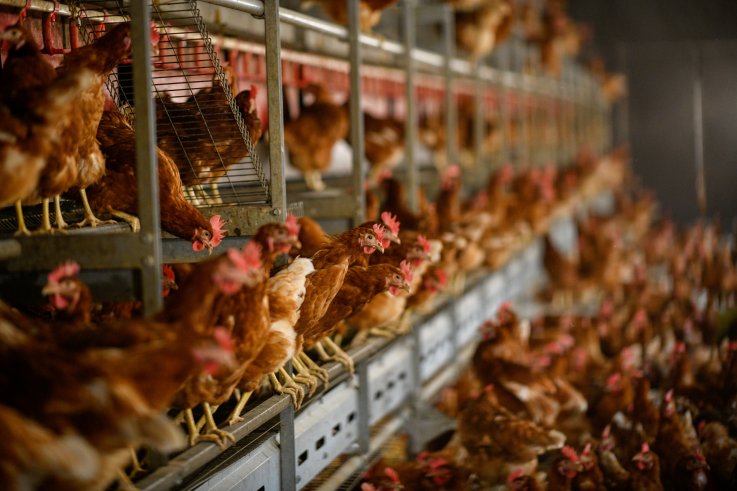
“Chicken shortage: Leave politics out of this, Opposition” (Part 1)

ONE wonders why when there is a national issue like the current shortage of chickens, some Opposition politicians are still resorting to a confrontational stance against whatever solutions the Government has.
According to the Department of Statistics Department Malaysia (DOSM), our country is growing more dependent on imported food products and is running a trade deficit in the area.
The import dependency ratio (IDR) – the percentage of a country’s dependency on imports of food products to meet domestic needs – is on the rise.
A higher IDR means more supply of food products has to be imported. The IDR of the country as a whole rose to 13.7% in 2015, up from 7.4% in 1987.
Against this backdrop, it is indeed a blessing Malaysia is considered self-sufficient when it comes to poultry, producing some 98.2% of its domestic needs.
But the Achilles heel lies in that the poultry farming industry is highly reliant on imported chicken feed. Almost all of the grain needed to make chicken feed is imported from the America in US dollars and is vulnerable to currency fluctuations.
And fertilisers, which are needed to grow grains, are also experiencing an increase in price. This has resulted in a hefty increase in the prices of grain, making it costly for poultry farmers, who were already suffering from the weakening Ringgit.
The Federation of Livestock Farmers’ Associations of Malaysia (FLFAM) said supply of animal feed was disrupted due to adverse weather conditions in supplier countries, which the governments there attributed to climate change.
On that note, the Agriculture and Food Industries Ministry (MAFI) estimated that grain corn prices have gone up from RM500 per tonne to RM1,900 per tonne.
The Domestic Trade and Consumer Affairs Ministry said the sharp increase in the cost of corn and soybean feed resulted in a 70% hike in poultry farming costs.
Since the beginning of the year the cost of wheat has risen by more than 60%. In the 2021-2022 season that began in July last year, Russian suppliers accounted for 16% of global wheat exports and Ukrainian producers accounted for 10%.
Pandemic and war
But due to the conflict between both countries, wheat exports got banned. Anti-Russia sanctions forced international companies to sever long-standing business ties and leave Russia, which caused supply disruptions.
The situation was also exacerbated after Kazakhstan, another major grain supplier, largely banned exports to protect its domestic food supply.
Early last week, wheat prices reportedly soared by further 6% shortly after India prohibited all exports of the vital food commodity with immediate effect because of an alarming heatwave.
The above backdrop is a must-know in order to understand the issue of chicken shortage in Malaysia.
Aaprt from the problem of chicken feed import, FLFAM also said the heatwave currently affecting Malaysia had hampered chickens’ growth.
“The situation makes the chickens eat less, have no appetite, get tired quickly and drink a lot of water,” FLFAM adviser Jeffrey Ng said.
This means the chicks are growing slower, so poultry producers cannot supply at the same rate. It has also prompted some chicken factories to shut down temporarily while waiting for the chicken to grow to the size needed.
It was reported that in Jasin, Melaka, a factory closed temporarily to wait for the chicken to grow from 1.1kg each to 1.8kg, as demanded by the market.
All the factors mentioned above have contributed to a higher chicken price since last year, culminating in recent weeks in a shortage of chickens in the country.
It is as if a significant supply of chickens has “disappeared” from the market, affecting restaurants and eateries specialising in chicken food menu. Also affected are regular consumers, wet market chicken sellers and supermarkets.
Even fast-food outlets are feeling the pinch. In other words, it has become a national crisis! – May 29, 2022
Jamari Mohtar is the Editor of Let’s Talk!, an e-newsletter on current affairs.
It is impossible to leave politics out of any assessment of the BN Government's response to the food crisis in Malaysia, because the BN Government's own actions and policies have been deeply tainted by politics all along.
ReplyDeleteSo much productive farmland, developed for years by hardworking farmers , has been diverted into other purposes by Government awarding the land to connected cronies.
Importation of food has been made into a major rentier economy, again , licensing and permits being the domain of political patronage.